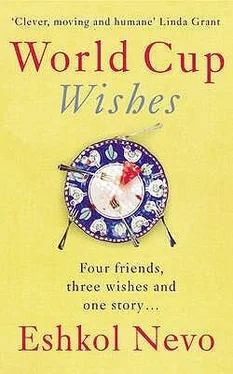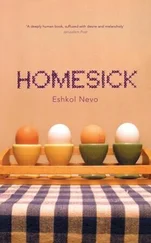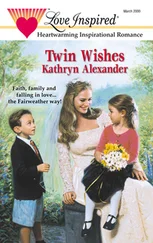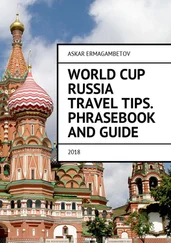APART FROM THAT picture with Amichai, on the roof, I don’t have any photos from the Intifada. I don’t think I felt that what we were doing in Nablus, in Jabalya or Raffiah would ever merit nostalgia. Perhaps that’s why I don’t have any good friends from the army. Ofir’s father, for instance, would get together with his mates from the Armoured Corps three times a year, and he’d start getting excited about their meetings a month beforehand. Churchill’s father has three friends from the Paratroopers, and one of them paid for another’s operation abroad not too long ago. I think that for them, and for many of their generation, the army was the breeding ground for friendship. And with me — just the opposite. My friends are from before the army. And when I happen to see someone who served with me in the territories, we say as little as possible to each other, and I think we both flinch inside. True, it might be that I’m the only one who flinches, and perhaps it’s all because of my tendency to always be in the opposition — Amichai, for example, still has friends from the army, and if you ask him, he’ll tell you a completely different story about the Intifada, a story of the brotherhood of fighters, of thwarting terrorist attacks and kill-them-before-they-kill-you, and he’d say that the army gave him Ilana and saved him from his gloomy family and the role he was forced to play in it, and those three years were the first time he felt he was able to live since his father died –
But I’m the narrator here, and I want to say that there are too many moments in my army years that I’m not proud of, and the lowest ebb was during the 1990 World Cup, in an unplastered, raw concrete building on the outskirts of Nablus.
Not even my friends know about that moment. And I didn’t want to mention it here either — I’ve been so taken with the spotless image of myself my words have created — but this confession has been knocking on the door of this book for quite a few pages already, and it’s blasting out of me now like a bullet.
We were supposed to stay on the roof of that building in Nablus for three days, but in the end, we stayed three weeks. They were supposed to bring us food once a week, and they brought field rations. We were so tired and hungry there that at some point, I started looking at the other nine soldiers who were with me and wondering which of them would be tastiest if we cooked him. And I had no doubt that if it came to that, I would be the one to cook him. The nine guys with me on the roof had done all their training together, and I was sent to join the company a week before we went down to Nablus, after I’d been kicked out of the officers training course. All of them — I wasn’t sure how — knew I’d been kicked off the course because I fell asleep during a lecture by the training base commander, and they enjoyed yelling ‘Good morning, Freed!’ into my ear every time they thought I was drifting off. Also, they gave me the hardest shifts and deliberately came late to relieve me, they shared the few special treats they received among themselves and never offered me any, and they made fun of me for writing too many letters to my girlfriend.
I didn’t have a girlfriend. But when they asked me who I was writing to, I couldn’t admit that it was to Churchill and Ofir, so I made up a girlfriend named Adva, who was stationed at an intelligence base on the Egyptian border and missed me so much that I had to write to her every day to calm her down. I hated the fact that I was lying to them. I hated those long observations in a futile attempt to identify hostile children. I hated detaining the night-time arrests in strange houses. Scared shitless. I hated the vulgar jokes. And the racist jokes. And the fact that, at one point, I was the main teller of those jokes.
But more than anything, I hated myself after the game between England and Cameroon.
It was Doron’s idea. He was the one who said, you see that house with the TV set? How about we go in there, do a small search, and while we’re at it, watch England— Cameroon?
I remember that I smiled. I thought he was kidding. But then Commander Harel himself asked, England— Cameroon? When does it start? The broadcast starts now, Doron answered, the game in half an hour. Commander Harel said, that should be one hell of a game. Then without another word, he began cleaning his gun in preparation to move out. And that’s how, in unspoken complicity, all of us except the guy on guard duty, took our weapons and combat vests and headed out in two columns to the parallel street and the small house that had a blue light flickering in its windows.
*
As I begin marching now, beside that Yuval, the soldier, I immediately sense that smell of the territories, which most closely resembles the smell of a sweatshirt on the morning after an all-night camp-fire. I see a Palestinian flag waving from the power lines above us again, even though we made them take it down the day before. I see the black slogans written on the walls and torn fragments of burned tyres. And I feel the sewage flowing between my feet, muddy and reeking and sticking to the soles of my shoes. And, as if more than ten years hadn’t passed, that fear begins to pound inside me, the fear that someone would drop a breeze block on us from the roofs, or a fridge.
The few people who were out in the street began walking faster then and looked at us: children two or three years old were still looking at us with open curiosity, but the fear was already visible in the eyes of the four-or five-year-olds. I glanced away from them and looked down at the shoes of the soldier marching in front of me, trying to convince myself that what we were going to do now wasn’t necessarily terrible, and perhaps something good would come out of it and we’d find ourselves sitting and watching the game with the family that lived in that house we were marching towards, and for ninety minutes, the barriers would fall and we would no longer be occupier and occupied, stoner and stoned, Jew and Arab, but just people. Watching the World Cup together.
*
But from the minute we pushed the door open, everything went south.
The family into whose lives we had burst was watching a quiz show on TV and didn’t understand why Commander Harel was demanding so insistently that they change the channel, what did that have to do with searching the house? My brother’s son, he’s from Jordan, the father tried to explain, he … ya’ani … he’s on this quiz show … that’s why it’s so important for us to watch it … it’s over in a few minutes … please, sit down. The father’s explanation sounded reasonable, and his tone was straightforward. But the commander thought otherwise, and for no reason, slapped him hard. His two sons, who, till then, hadn’t said or done anything, stood up and went to stand at either side of him, and then Doron pointed to one of them and shouted, hey, that’s the bastard who dropped that breeze block on us yesterday!
Within seconds, a God-awful commotion began that ended with all the objects in the living room, except the TV — vases, pictures, bowls, lamps — shattered. The boy who had dropped the breeze block on us (or perhaps it wasn’t him?) was standing handcuffed in a corner of the room, his right arm twisted. Doron had twisted it, exactly as the krav maga instructor had taught us in a lesson a week before. I remembered their panting as they struggled, and the muttered incantations and curses of one of the old Arab women that came later. I remember that we pushed her and the rest of the family with our rifle butts and our hands into a small side room.
Then we fiddled with the dial till we found the game.
*
When I say we, that includes me.
There were extenuating circumstances. Of course. I was a kid — what’s nineteen? A boy! And I was just following orders, naturally, what can a soldier do except follow orders? Even Rabin himself said, ‘Break their bones’, the Rabin of the Rabin assassination! So what could a boy from Haifa do? Anyway, I didn’t raise a hand to anyone. I swear! When Doron was beating up that boy, I even pushed (too hard? too eagerly?) the old woman and the children into the side room so he wouldn’t beat them too. And another time, in Jenin, a Palestinian who was hit with a rubber bullet was lying in the middle of the street and my commander told me to leave the bastard there, let him die, but I screamed that I was a medic and had to treat him, and I kneeled next to him and managed to stop the blood that was spurting out of him so rapidly. I was able to stop the bleeding and save him, and I didn’t care that, afterwards, the whole unit called me Yuval-bleeding-heart and Yuval-the-leftie, and I didn’t care that I was confined to the base for insubordination.
Читать дальше












